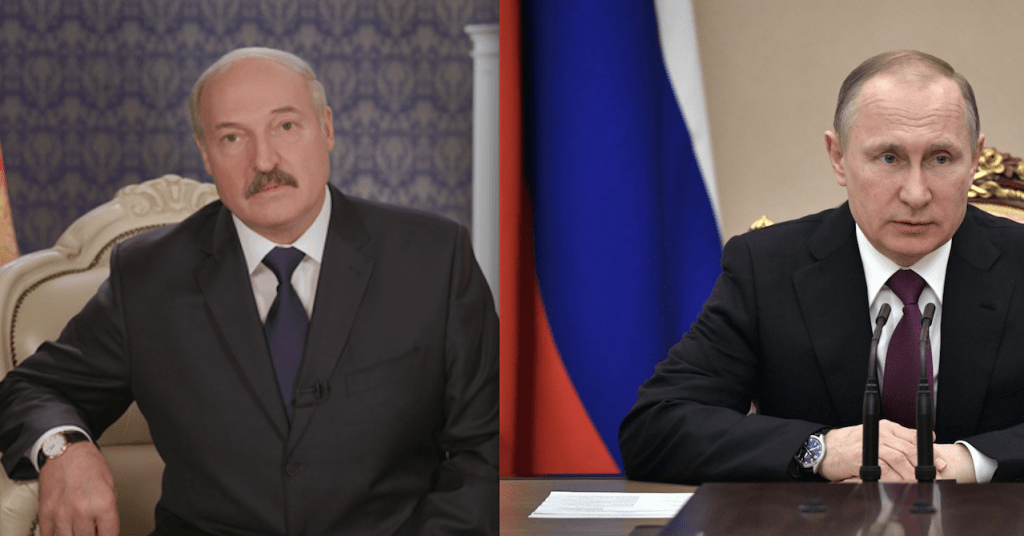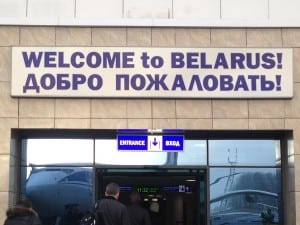
Editor’s note: For some background on the recent protests in Belarus and Russia, read interviews with demonstrators conducted by the Vilnius Students for Liberty and published by Freedom Today.
By JOSH FRIEDMAN
Russia and Belarus on Sunday marked 20 years of a supranational union between their two countries. While cultural, political and economic ties bind the two nations, the celebration of “Unity Day” comes at a time in which relations between Moscow and Minsk are testy and Russia is vowing to “not allow Belarus to be ripped out of its orbit.”
Several years after the collapse of the Soviet Union, Russia and Belarus launched one of several attempts to form a new supranational union in the region. On April 2, 1996, Moscow and Minsk created the Commonwealth of Belarus and Russia. On the same day a year later, a treaty was signed transforming the commonwealth into the Union State of Belarus and Russia.
As it stands now, the union state allows Belarusian citizens to live and work in Russia and vice versa. Greater integration of the two states has not come to fruition, though Belarus remains very dependent on Russia, particularly for cheap energy. Belarus is also a member of the Russian-dominated Eurasian Economic Union.
But Belarusian President Alexander Lukashenko, who has been in power since 1994, often tries to play the West and Russia off against one another in order to extract benefits, critics say. Lukashenko’s relations with Moscow have soured a bit in recent years. In 2014, he criticized Russia’s annexation of Crimea, saying the event set a bad precedent.
In recent months, Minsk and Moscow have been quarreling over the amount of gas debt Belarus owes Russia. Moscow places that figure at $550 million. Russia cut oil supplies to Belarus amid the gas dispute. Minsk has reportedly considered the possibility of pulling out of the Eurasian Economic Union.
 Lukashenko recently irked Moscow further by announcing a visa liberalization policy that allows citizens of 80 countries, including the U.S. and most European states, to travel to Belarus visa-free. Russia’s FSB responded by ordering the creation of security zones along the Russian-Belarusian border.
Lukashenko recently irked Moscow further by announcing a visa liberalization policy that allows citizens of 80 countries, including the U.S. and most European states, to travel to Belarus visa-free. Russia’s FSB responded by ordering the creation of security zones along the Russian-Belarusian border.
RELATED: WANT TO TRAVEL TO BELARUS? NOW IS YOUR CHANCE
Then on Feb. 3, Lukashenko delivered a 7.5-hour live news conference in which he lashed out at Russia over the border controls and a number other issues.
“Russia has become concerned that Belarus will go away, that Lukashenko has turned to the West,” Lukashenko said during the press conference, referencing himself in third person.
RELATED: BELARUS OPENS TO TOURISTS AS TENSIONS WITH RUSSIA RISE
Lukashenko is currently in St. Petersburg for talks with his Russian counterpart Vladimir Putin that are scheduled to take place Monday.
While Lukashenko has recently butted heads with Putin, Minsk and Moscow appeared to put on a display of unity last month in how they handled protests in their respective countries. On March 25, Belarusian police arrested hundreds of demonstrators who attempted to stage protests. The arrests were the latest and largest crackdown on a series of demonstrations against Belarus’s new parasite tax, a penalty levied against unemployed people.
On March 26, Russian police arrested at least hundreds of demonstrators who took to the streets in response to opposition leader Alexei Navalny’s call to protest corruption, particularly allegations of impropriety relating to Prime Minister Dmitry Medvedev.
Prior to his latest crackdown on dissent, Lukashenko had been making strides in his relations with the West. In 2015, Lukashenko released several political prisoners, which prompted the EU to lift the sanctions it had imposed on the Belarusian president, government officials and companies.
However, following this year’s crackdown on protests, Minsk risks incurring new western sanctions, Reuters reports.
Moscow may see Putin’s meeting with Lukashenko Monday as an opportunity to reel in Belarus.
In addition to publishing celebratory statements, Russian state-run media marked Unity Day on Sunday by declaring, “No More Maidans: Russia Will Not Allow Belarus to Be Ripped Out of Its Orbit.” The headline, which appeared in Sputnik, referenced the Euromaidan protests in Kiev that steered Ukraine away from Russia’s orbit and toward the West.
Moscow alleges the U.S., European governments and NGOs have earmarked tens of millions of dollars for initiatives aimed at regime change in Belarus. Lukashenko recently lashed out at the U.S. and Germany for allegedly funding protests in Belarus. But the Belarusian leader has also lashed out at Russia recently with warnings that there will be no military occupation of Belarus.
“No one will occupy us, no one will send in troops,” Lukashenko said during his 7.5-hour press conference. “We will protect ourselves and our independence.”
